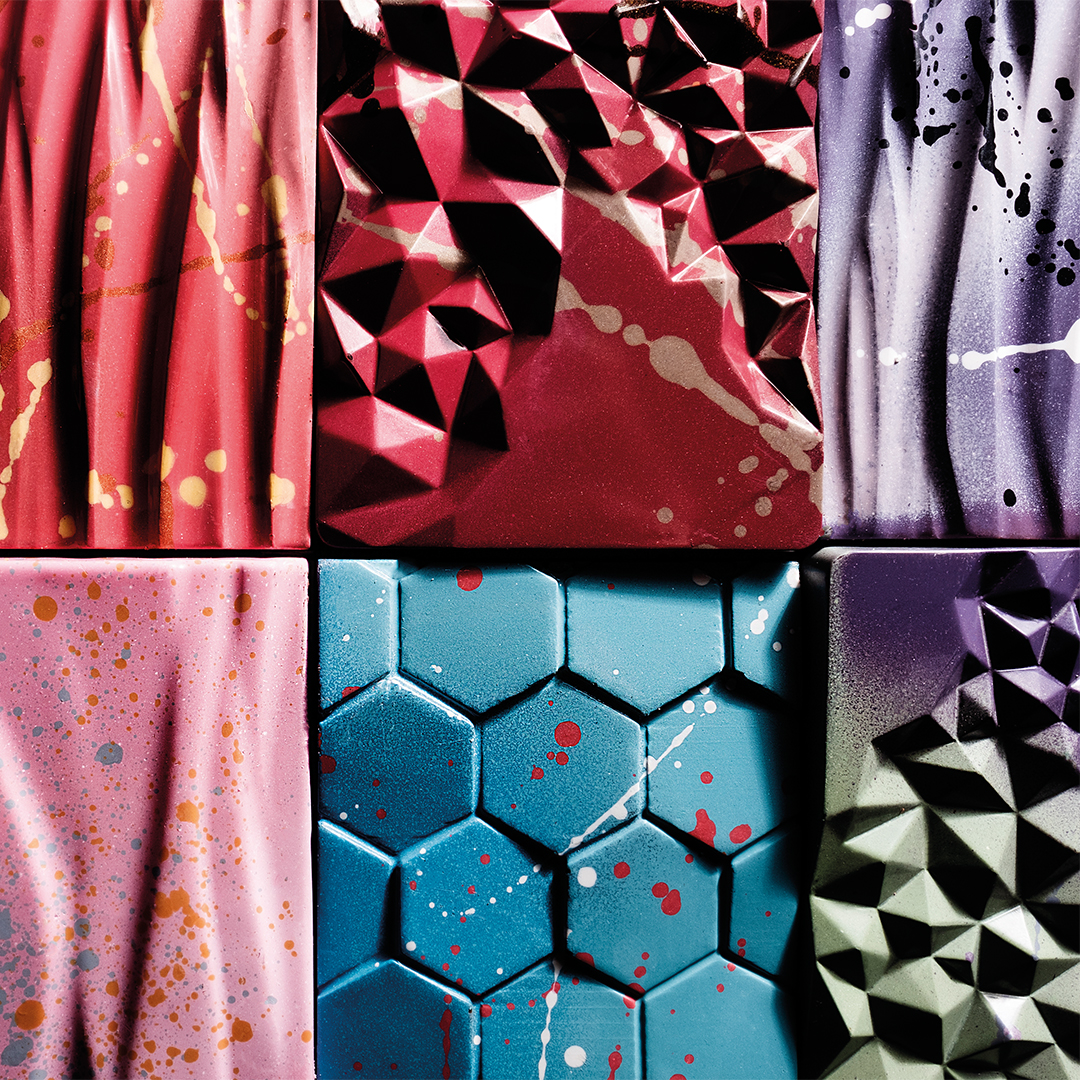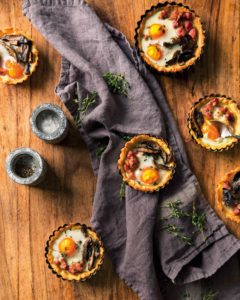Deep in Pretoria, there’s an award-winning all-woman team of chocolatiers making art out of chocolate according to their own rules. Our Features Editor Christi Nortier got the scoop on Jack Rabbit Chocolate Studio’s vision for taking African chocolate to the world.
Jack Rabbit Chocolate Studio is “humble but fancy AF”, where fine art and chocolate meet for the better, says founder Stephanie Ceranio. The studio makes all of its own chocolate, as well as every delicate filling and custom creation (they particularly encourage “totally out there” and “the crazier the better” chocolate ideas).
It may be a lot of people’s daydream to work with chocolate all day long, and it is a dream, but make no mistake: It’s a temperamental and unforgiving medium to make art with, is the resounding opinion of Stephanie and the team. But why keep tempering and trying? Because cacao that is grown in Africa should be crafted into chocolate creations by African chocolatiers, they believe – especially if said chocolatiers are as kick-ass as these women are.
Jack Rabbit Chocolates started in Stephanie’s kitchen. Whenever she had spare money, she would buy ingredients and challenge herself to push the boundaries of her pastry skills. Someone mentioned what a nightmare it is to temper chocolate and her ears pricked up. “I thought: ‘This sounds right up my alley!’ and I was due for my next challenge. Chocolate has been the most challenging thing I’ve tried. It’s like a teenager and toddler in one. Just when you think you know everything about it, there’s something new it doesn’t like. But over time, you get to know when the chocolate is ready just by the smell or the way it moves. Once you get it right, it’s super rewarding”, she smiles.
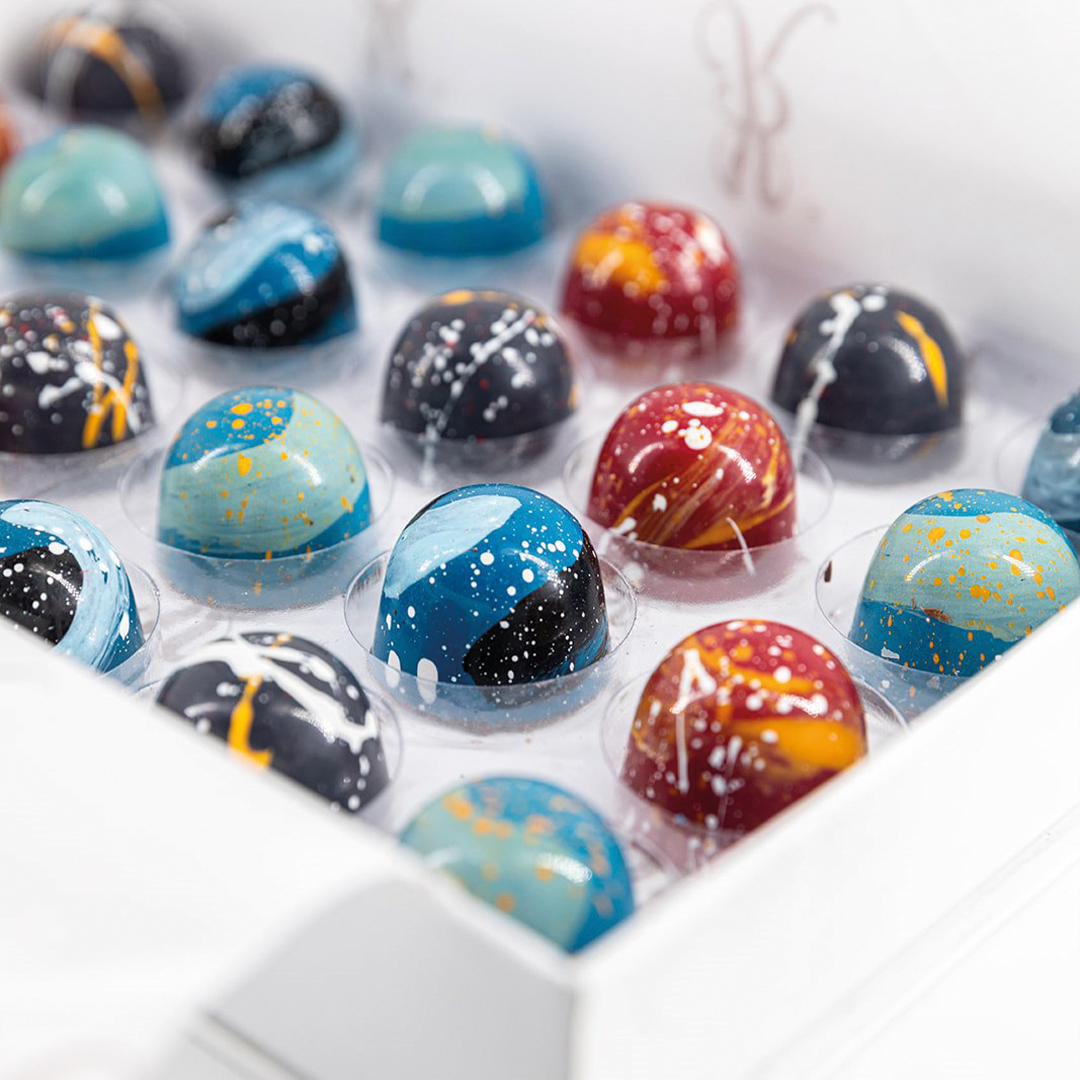
Frustrated that a lot of chocolate on the shelf tasted the same, Stephanie decided to do something about it. She envisioned making chocolate she enjoyed eating, which needed to tick some specific boxes. Firstly, it had to be fresh: their chocolate would never sit on a shelf for a year before reaching a customer, like commercial chocolate does. They should be super soft inside and melt in your mouth, she adds. Then, the flavour has to pack a punch: “You should know exactly which flavour you’re eating without having to look at a label”, she insists. The team dreams up all their flavours themselves and changes them according to the season. Chocolate should feel special, she believes. “It should feel like a luxury to receive a box and open it to see these beautifully made and painted bonbons.”
The team has truly blossomed – from one chocolatier five years ago to a team of seven women, all trained in-house. And it is intentional that it’s an all-female team, confirms Stephanie. “In my work as an engineer, I would go out to site as an expert in my field but be totally dismissed in favour of the opinion of whichever man was in the room. I didn’t want that kind of domination in my studio. It’s cliché, but true: Women have to work twice as hard to be taken seriously, especially in pastry and chocolate. I want to create a studio where women don’t have to fight for the space and the recognition they deserve. I wanted to create an opportunity for women in this very niche field: some of the chocolatiers have a background in pastry and others have no cooking experience but are so keen to learn. We have an environment where we all teach one another, and you can always turn to the person next to you for help.” And this team of seven are moving mountains. Last year brought them an opportunity to export to Japan, a new home for their chocolate studio in Pretoria and the chance to scout out an expansion into Europe. The plan is to open a store in Amsterdam, the traditional European hub of chocolate, to say loud and proud that African chocolate by African chocolatiers has arrived – and it’s there to stay. “We can try and change the narrative that the best chocolate is made in Europe by Europeans. Even though we’re small, we can try. These women are creating incredible chocolates and every day
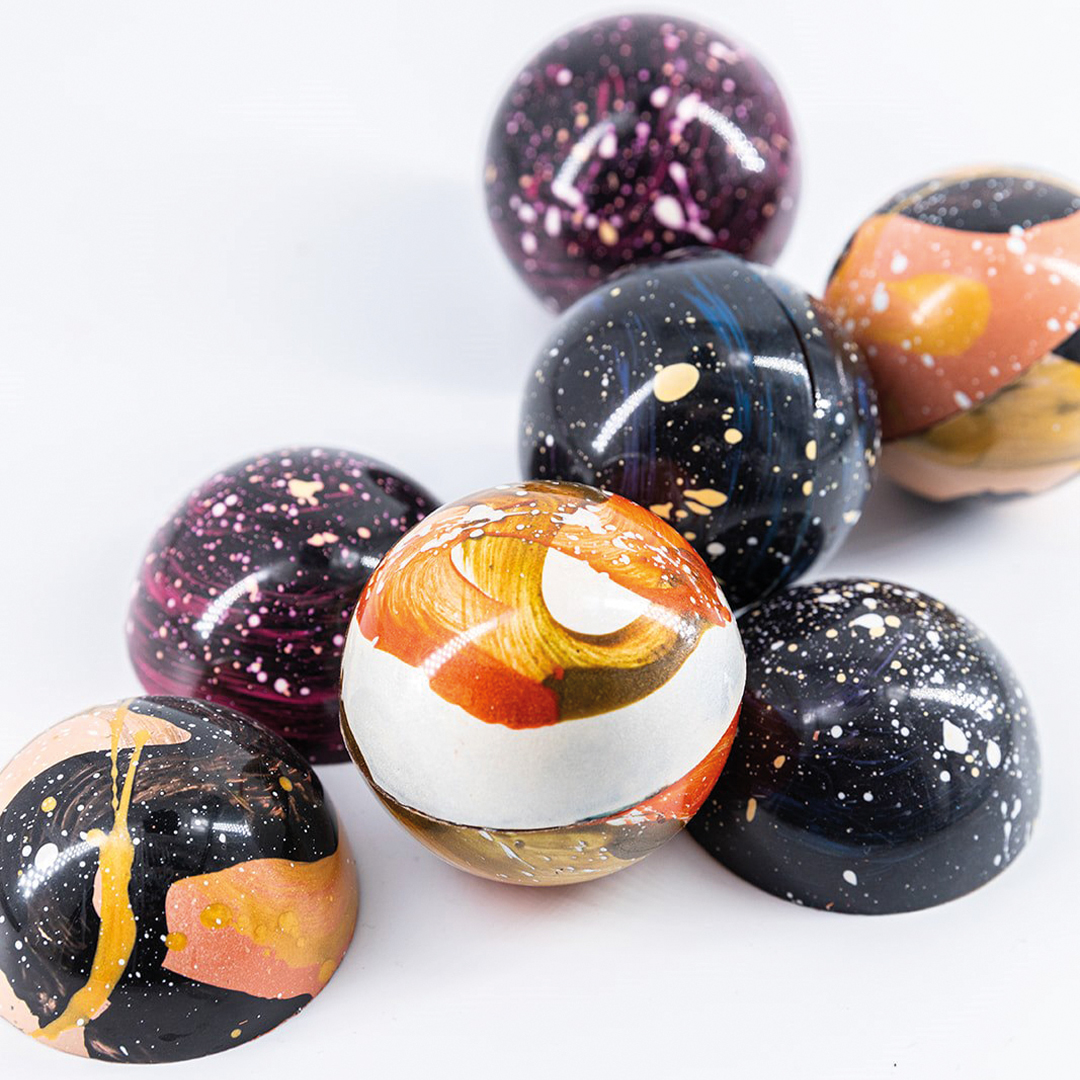
I feel that theirs are better and super special. Each bar is different: We have never streamlined the process because we want each person to make each bar their own work of art. It’s an opportunity for them to create something totally for themselves. I want everyone to taste it and experience it. These women need to get the personal recognition that they deserve.”
Many of the bars are single origin slabs made with cacao beans sourced directly from farmers in Ghana, Malawi, Uganda and Tanzania. In 2024, this is only going to increase in volume. “I want to use even more African cacao beans, so that we can create additional fair-trade opportunities for African farmers plus make something special. We literally have a guy who drives his bakkie to the farms and fetches the beans for us! And that way, we make it totally our own. Like wine, cacao beans have terroir. Chocolate tastes different depending on where, when and how the beans were grown. Our chocolate can teach people all about that.”
You’d think that maybe Stephanie is tired of eating chocolate by now, but you’d be very wrong. “I don’t think I’ll ever get sick of it. I’m not addicted to it, but I do feel that I’m an unpleasant person if I don’t have chocolate,” she chuckles. “I don’t know it it’s just being around chocolate or if it’s being around my team, but I enjoy it every single day. I feel such pride for everything my team has made. I can never get tired of just being in awe of their capabilities. When I’m away from the studio, other chocolate just doesn’t scratch that itch. Their chocolate is just that special.”
MEET THE TEAM
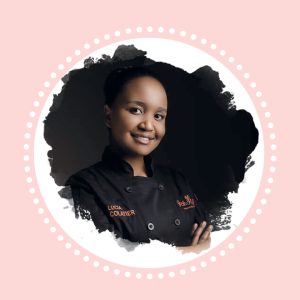
LUCIA SITHOLE – CARAMEL EXPERT
“I got to hand deliver two of our bonbons to the World International Chocolate Competition finals in Germany in 2022. I created one of the bonbons and it got above 85%, which means it’s pretty good! It felt like I was dreaming, because I never thought I would achieve so much after just a year of working here. It was tough being a young black woman going to a foreign country for the first time on my own, but it was one of my best experiences. I grew because
I met new people and saw
a different culture.”

JERMINAH MASWANGANYI – CHOCOLATE AFICIONADO
“I think it’s important for Africans to make chocolate with African cacao beans because we need to be proud of our products. I feel like Europe and other countries don’t know our chocolates and they should. I’ve taken our chocolates to Ghana and Mozambique, and I also think Africans need to look past the high price and appreciate how good our own chocolate is. If you taste it, you’ll understand why it’s so special”
Photographs: Meraki Impressions, Supplied

